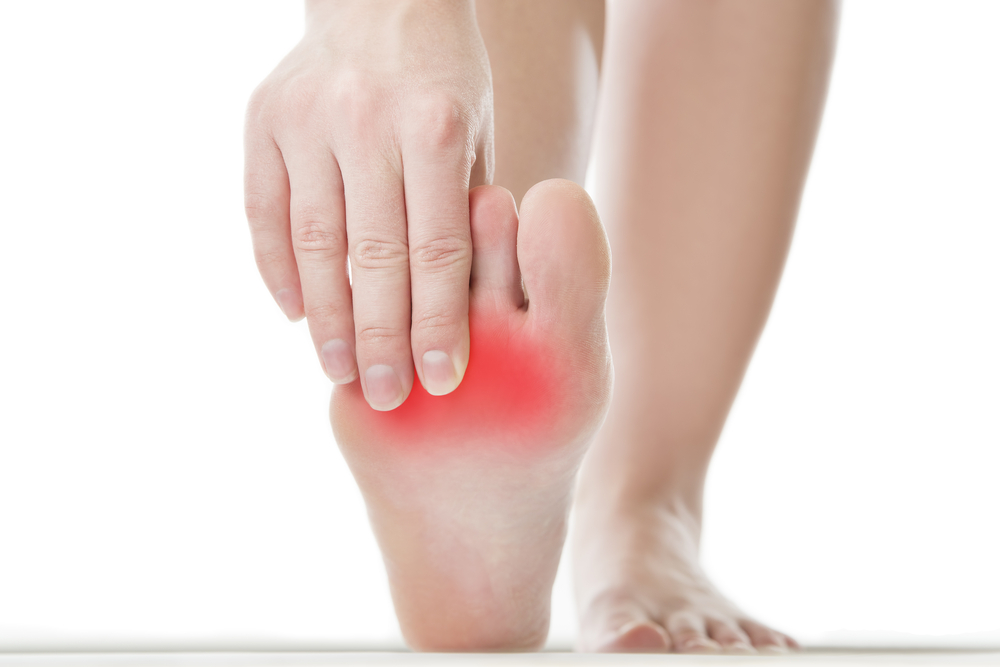Diabetes is a serious disease that can damage the nerves in your feet, causing a condition called sensory diabetic neuropathy, which can then prevent you from feeling sores or cuts on your feet. If these cuts or sores are left untreated, they can become infected, leading to even worse issues such as bone infection and even amputation. As such, it is critical that you follow guidance on taking care of diabetic foot problems.
Top 13 Things You Can Do for Diabetic Foot Problems
Control Your Diabetes
The best thing you can do to prevent foot problems is to control your diabetes. Keeping your blood sugar within the recommended range and eating properly will help keep your nerves healthy so that you can continue to feel your feet.
Then, if you get a cut or sore on one of your feet, you’ll be able to care for it correctly to ensure it does not get worse. Additionally, follow your doctor’s advice about exercise and medications as well.
Check Your Feet Daily
If you are already suffering from sensory diabetic neuropathy or poor blood flow, which is another complication of diabetes, you will need to check your feet for sores every day. Sores may include blisters, calluses, cuts, or even redness that indicates your foot is being irritated by something in your shoe.
If you notice any of these issues, take care of them promptly to keep them from getting worse. Bandage any sores, cuts, and blisters, and gently smooth calluses.
Wash Your Feet Daily
This is something you can do while you are inspecting your feet for sores and other anomalies. Use mild soap and warm water to wash your feet, but make sure the water isn’t too hot by using your elbow to test it.
Since your hands can suffer from neuropathy as well, they are not the best judge of water temperature. Do not soak your feet, and do not forget to dry them thoroughly with a towel, including between all toes.
Smooth Corns and Calluses
Corns and calluses can make your shoes not fit as well as they should, leading to sores or blisters. For this reason, you want to make sure you smooth any corns and calluses on your feet as soon as you notice them.
The best time to do this is right after a bath or shower when your skin is soft. Use an emery board to gently smooth the calluses and corns and only move the board in a single direction.
Check Your Toenails
At least once a week, inspect your toenails, making sure they are short and smooth. If they need to be clipped, do so by cutting the nail straight across. Do not round the corners or try to clip the sides of your nails.
This increases the chances of you irritating the skin around your nails, which can lead to larger sores. Instead, use an emery board to smooth the nails after you have clipped them straight across.
Wear Closed-Toed Shoes and Socks
To protect your feet from stepping on sharp objects and other dangers, always wear closed-toed shoes and socks. Socks that properly fit and do not irritate your feet in any way will add a barrier between your skin and your shoes.
Closed-toed shoes, rather than sandals or flip-flops, keep your feet protected no matter where you are and provide additional support as you walk. Closed-toed slippers are fine around the house, but do not go barefoot at any time.
Wear Shoes That Fit Properly
Properly fitting footwear is a critical part of proper diabetic foot care because shoes that do not fit well can cause blisters, calluses, or other issues that can turn into foot wounds that are much more serious, especially if you can’t feel your feet.
Canvas or leather shoes are recommended because they can be broken in and molded to your feet. Additionally, you can purchase extra-wide sizes in specialty stores if regular-width shoes do not fit well.
Keep Your Feet Away From Extreme Temperatures
You don’t want to burn your feet by walking on hot sand or pavement, so always wear shoes if you’re going to the beach or anywhere with bare pavement.
Moreover, if your feet get cold at night, wear socks or use an electric blanket to keep them warm. People with neuropathy cannot feel when their feet are too hot or too cold, increasing the risk of damage to the skin due to burns or lack of circulation from the cold.
Encourage Blood Flow
Since neuropathy is caused by a lack of blood flow, make sure to encourage your blood to circulate in your feet as much as possible. When you’re sitting at a computer, put your feet up on a foot stand. Several times during the day, move your ankles in circular and up and down motions and wiggle your toes frequently.
Moreover, don’t cross your legs when you are sitting. When you get home from work, elevate your legs to encourage circulation.
Check Your Shoes
Before putting them on, always check your shoes for anything that may have fallen in them while they were off. You may also find that something small got into your shoe, such as a small pebble or thorn, that you did not detect while you were wearing it because of the neuropathy in your feet.
These small objects can irritate your feet or even cause small cuts that can develop into much bigger issues down the road.
Stop Smoking
If you smoke cigarettes, now is the time to stop. Smoking causes additional circulation problems by restricting the blood supply to your limbs, including your legs and feet. Smoking can lead to a disease called peripheral arterial disease (PAD), which can cause gangrene and even amputation.
Since these are possible complications of diabetes as well, it’s recommended that you cut out the risky behavior of smoking since you can’t entirely remove the risk presented by diabetes.
Get Your Feet Examined
It’s extremely important that you have your feet examined by the physician monitoring your diabetes every time you have an appointment for a checkup. In addition, you should have your feet thoroughly examined by a podiatrist at least once a year.
This will ensure that you do not have any potential hot spots that could turn into medical issues that can be much more difficult to treat. Follow the advice of your physicians for taking care of any potential wounds.
Get Foot Wounds Treated Immediately
If you have any foot wounds that you are unable to take care of yourself, make an appointment with your podiatrist immediately. Such wounds may be those that won’t heal, are large, have a foul odor, are discolored, and have a pus-like discharge.
These types of wounds must be professionally treated so that any infection does not travel to your bone, where it may have to be surgically removed. You may require antibiotics or other medications.
Feet are not normally the first thing that comes to mind when you have diabetes, but if you are diabetic and you don’t take care of your feet, you could actually end up losing them. Contact Island Foot Clinics in Campbell River, Kelowna, Prince George, Terrace, Victoria, and seven other British Columbia locations to schedule your foot care appointment today.

